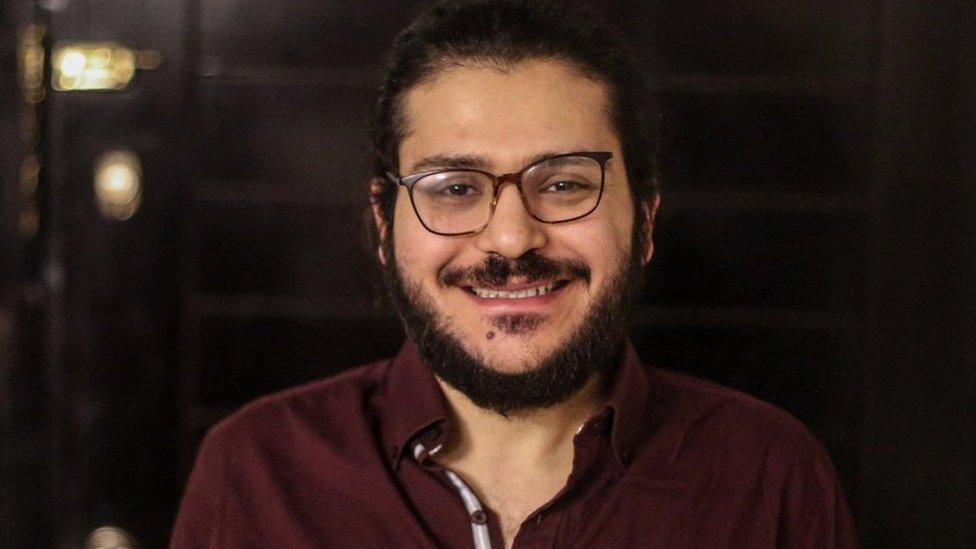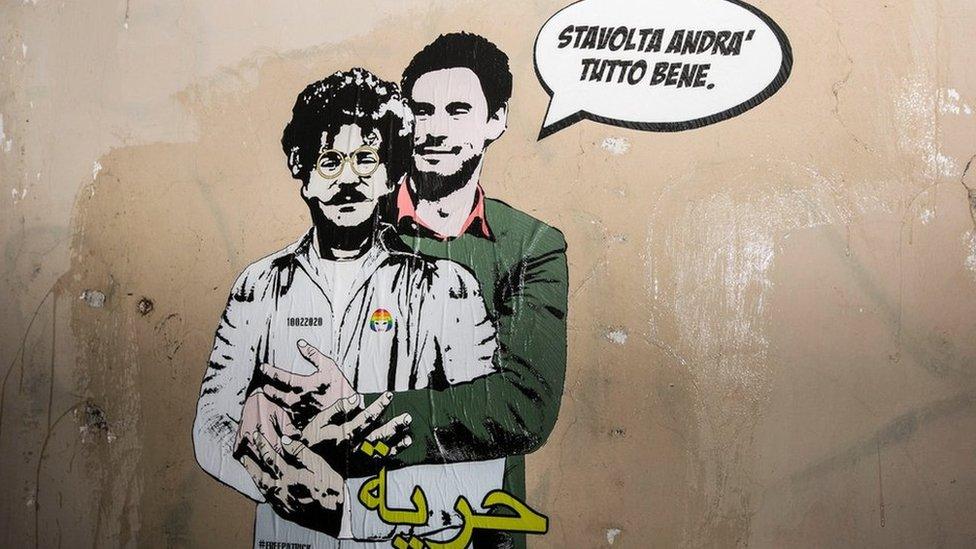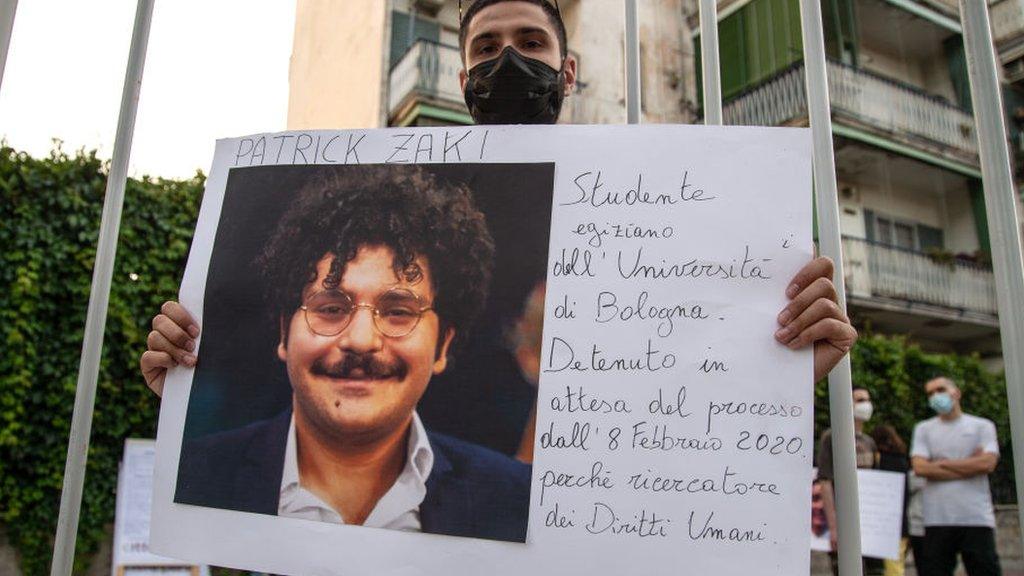Patrick Zaki: Egypt jails Christian rights activist on false news charge
- Published

Patrick Zaki in December 2021, when he was released after 22 months in pre-trial detention
An emergency court in Egypt has found a rights activist guilty of "spreading false news" and sentenced him to three years in prison, colleagues say.
The Egyptian Initiative for Personal Rights (EIPR) said, external Patrick Zaki was convicted over an article he wrote about his life as a Coptic Christian.
The judgment cannot be appealed.
Zaki - who denied the charge - spent 22 months in custody after being arrested at Cairo airport in 2020 upon his return from studying in Italy.
The EIPR's executive director, Hossam Bahgat, called the verdict a "travesty of justice" and called on President Abdul Fattah al-Sisi to annul it.
"This is a regime that tells the world that it has been the best ever in the history of Egypt for the rights of Coptic Christians. Yet, here we have a human rights defender recounting a week in his life as a Coptic Christian and being prosecuted and convicted for it," he told Reuters news agency.
Prime Minister Giorgia Meloni of Italy, which has been watching the case closely amid widespread public attention there, said her government remained committed to a "positive solution". "We are still confident," she added.
Egypt's government has carried out what rights groups have described as a relentless crackdown on any form of dissent since President Sisi led the military's overthrow of his democratically-elected predecessor in 2013. They say tens of thousands of government critics have been detained arbitrarily.
Patrick Zaki had been studying for a master's degree in Gender and Women's Studies at the University of Bologna when he decided to return to Egypt for a short family visit in February 2020.
The 32-year-old's lawyers said he was detained by the National Security Agency at Cairo International Airport and held incommunicado for 24 hours before being transferred to his home city of Mansoura.
His lawyers alleged that he was then subjected to torture, including with electric shocks, while being questioned about his activism and the EIPR. The Egyptian government has denied that security forces torture detainees.
Prosecutors eventually charged Zaki with "spreading false news inside and outside of the country", based on an opinion piece published on the Daraj news website in July 2019.
The EIPR said the article - titled Displacement, Killing and Restriction: A Week's Diaries of Egypt's Copts - described his experiences as a Coptic Egyptian and his views on current events affecting the religious minority.
The group asserted that Zaki was simply expressing his opinion and that the prosecution infringed on his basic rights.
Zaki pleaded not guilty to the charge at the start of his trial at the Emergency State Security Court in Mansoura in September 2021. Three months later, the court ordered his release on bail - a decision Italy's government welcomed.
He was not allowed to leave the country while the trial continued. But last week, he was able to graduate from Bologna University with a distinction, after defending his master's thesis via video link.
Following Tuesday's judgment, Bologna University rector Giovanni Molari said another 14 months in prison "would be an injustice and an immense pain for Patrick, for all his loved ones, for all those who have suffered and endured with him over these years".
Related topics
- Published12 February 2020

- Published28 September 2021
